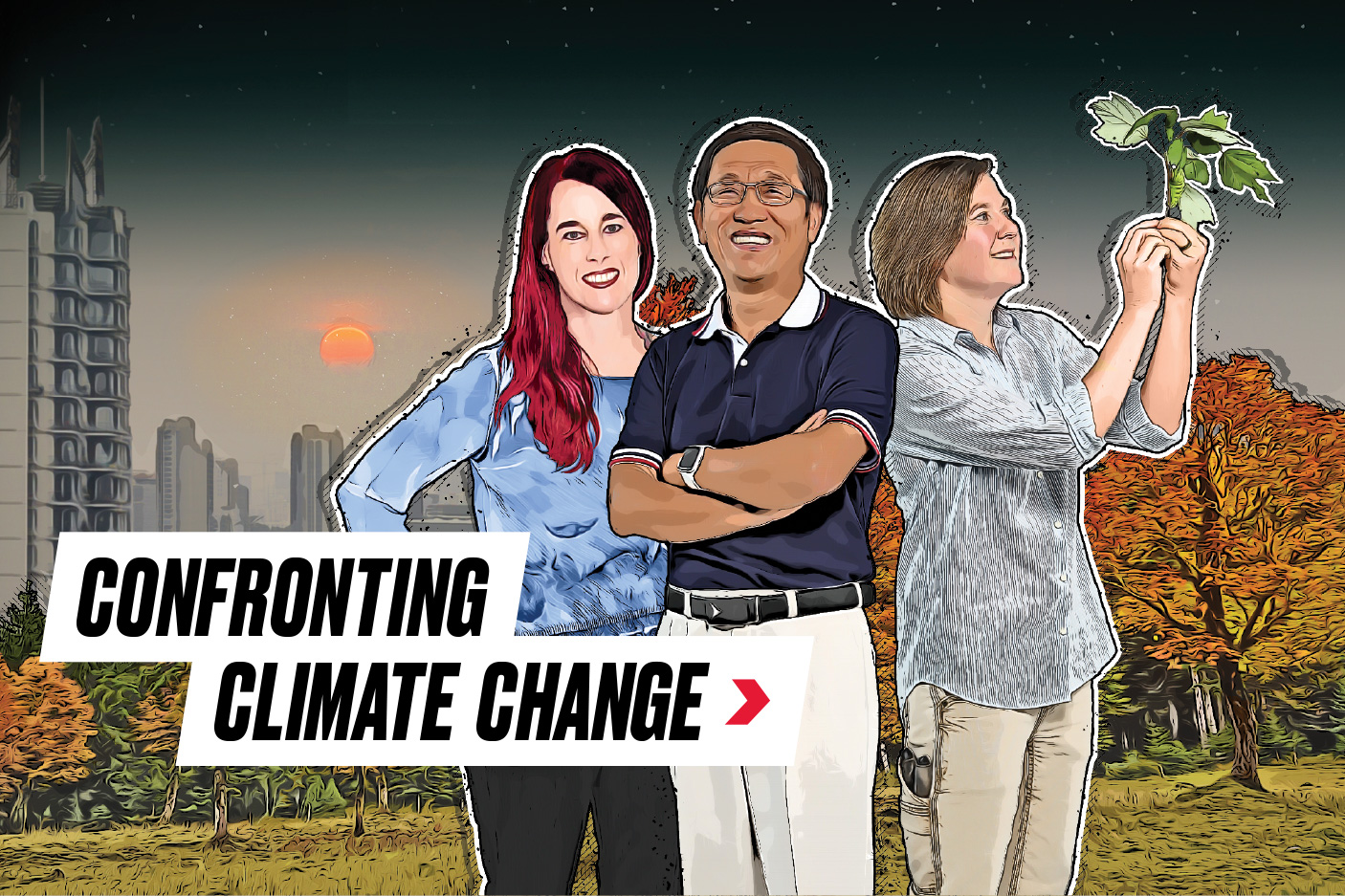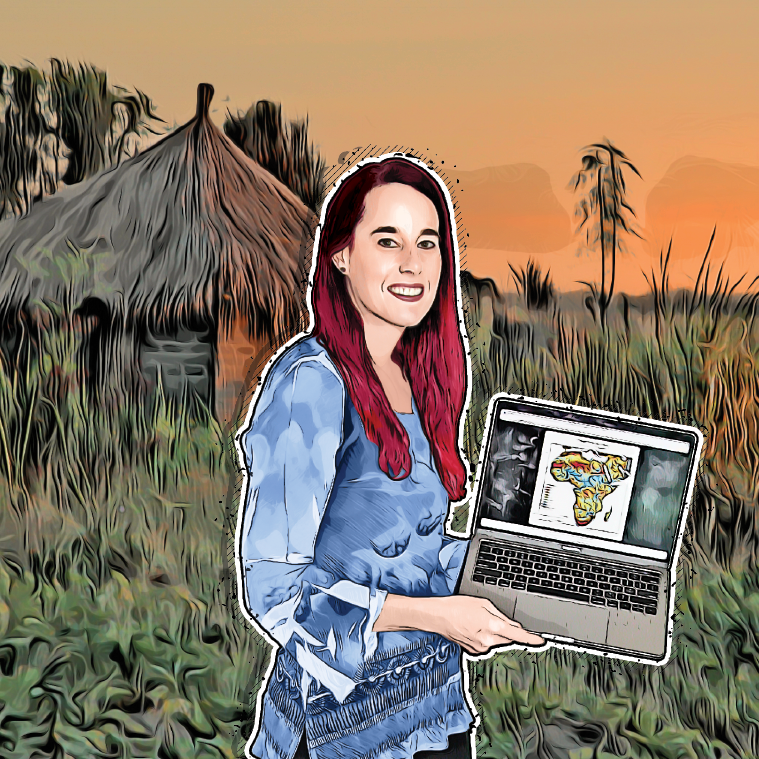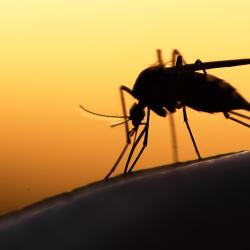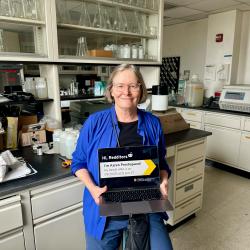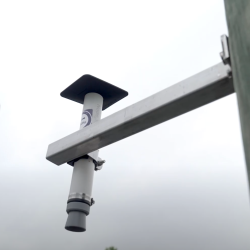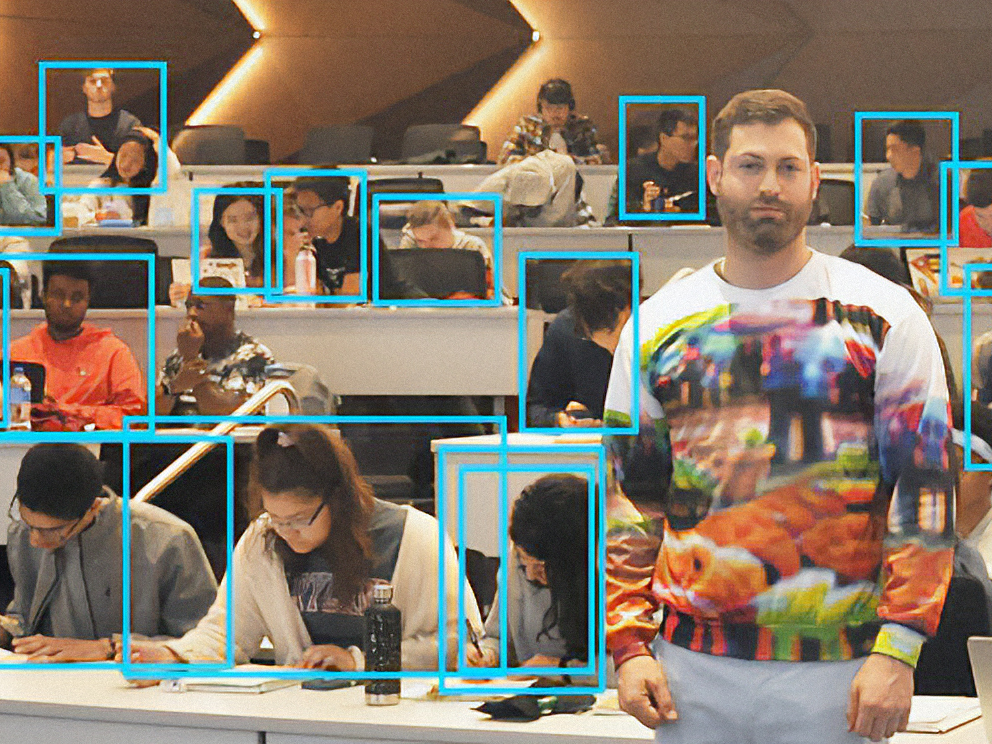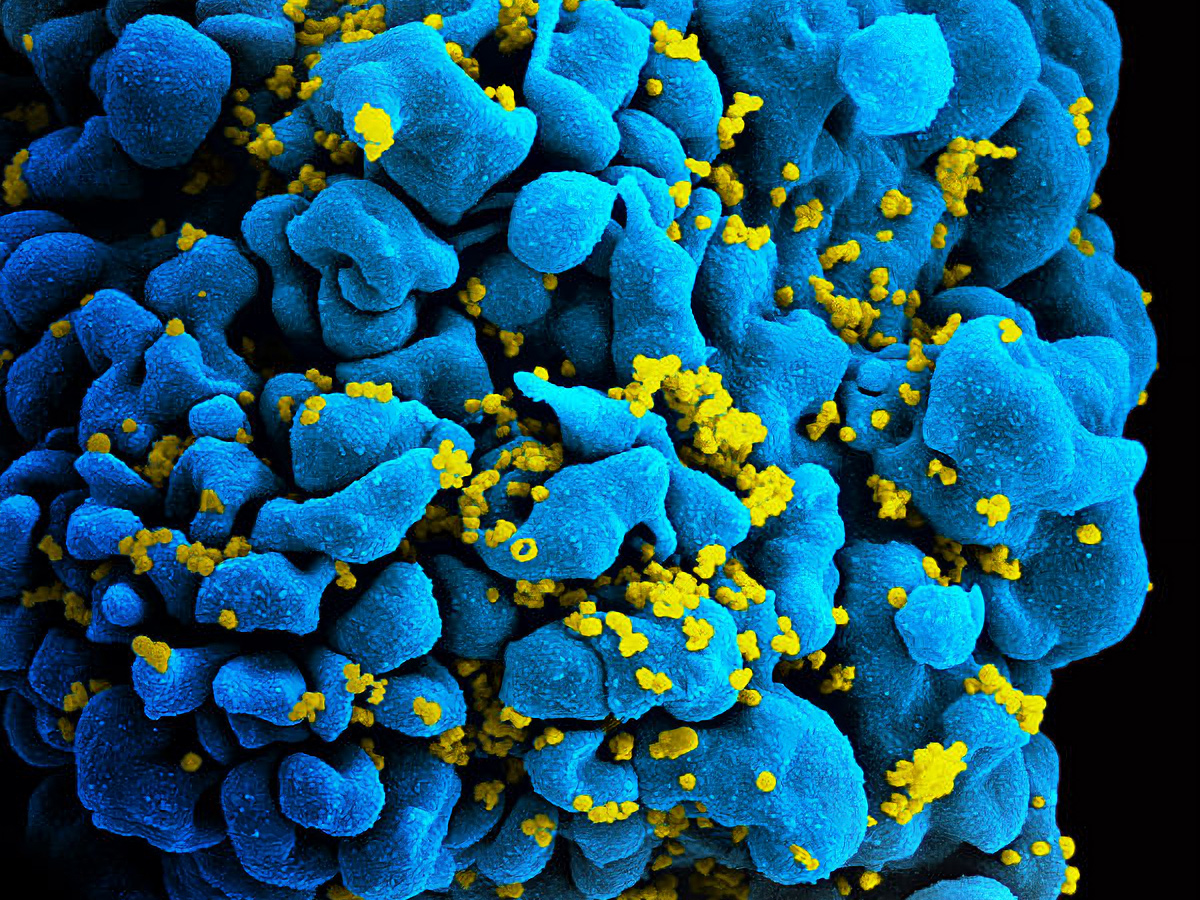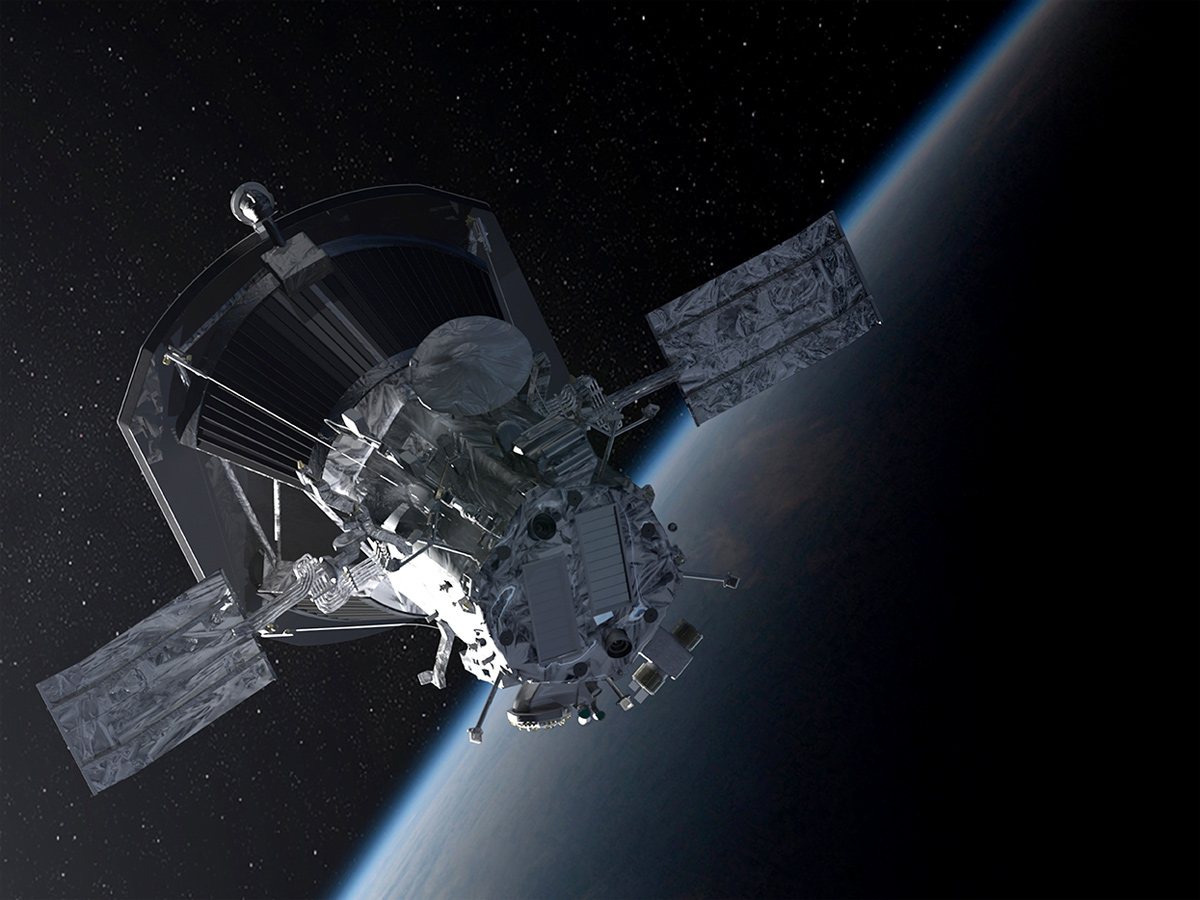WE SEE THE SIGNS EVERYWHERE—
OUR FUTURE IS IN JEOPARDY
CMNS researchers are fiercely committed to the fight against global warming. They are tapping into satellite data to predict crop-killing droughts before they happen, identifying trees that adapt to climate change instead of worsening it, unraveling the complex relationship between airborne pollutants and weather conditions, and more to solve this grand challenge.
ESSIC studies climate variability and change, atmospheric composition and processes, the global carbon cycle (including terrestrial and marine ecosystems/land use/cover change), and the global water cycle via analyses of in situ and remotely sensed observations together with component and coupled ocean-atmosphere-land models. Together, this provides a foundation for understanding and forecasting changes in the global environment and regional implications. Data assimilation and regional downscaling provide the means by which the observations and models are linked to study the interactions between the physical climate system and biogeochemical cycles from global to regional scales.
CISESS performs collaborative research aimed at enhancing NOAA's ability to use satellite observations and Earth system models to advance the national climate mission, including monitoring, understanding, predicting and communicating information on climate variability and change.
The National Socio-Environmental Synthesis Center (SESYNC) brings together the science of the natural world with the science of social systems and decision-making to solve problems at the human-environment interface. For 10 years, SESYNC has accelerated research and learning that seeks to understand the structure, functioning, and sustainability of coupled social and environmental systems. To further this work, we invite you to explore our research and learning resources.
Addressing Climate Challenges for a Sustainable Earth unifies the expertise of UMD’s scientists with the immediate requirements of Maryland’s decision-makers to address the complexities of climate change. Working alongside stakeholders, researchers can assess regional needs and find innovative solutions rooted in both the real demands of the community as well as UMD’s groundbreaking research. Based in a research-to-impact philosophy, the initiative will develop outcomes that meaningfully support our region, state, nation, and world in addressing the societal impacts of climate change. [Learn more]



